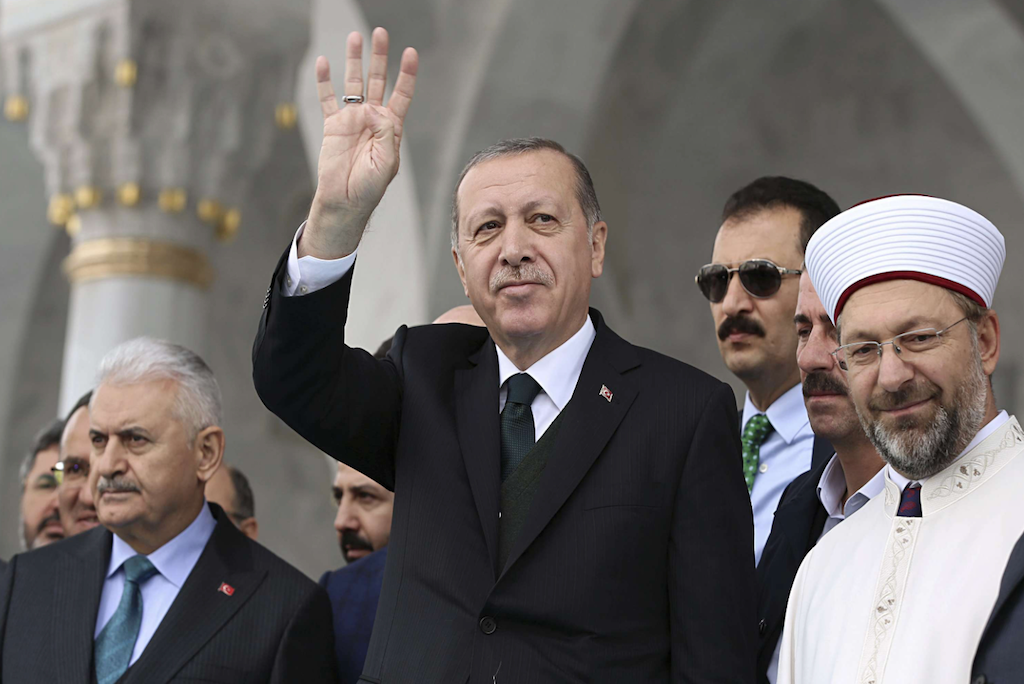Turkey’s controversial religious body, Directorate of Religious Affairs (Diyanet), has not only ballooned in size but also begun to serve political Islamist aims after 15 years of Islamist government of Justice and Development Party of Turkish autocratic President Recep Tayyip Erdoğan, wrote widely circulated weekly news magazine The Economist on Thursday.
The Economist has reported that the Diyanet, which was set up in the early years of the Turkish Republic to supplant other forms of Islamic belief and to tame religion within a secular state, “had already made it known that celebrating the new year, playing the lottery, feeding dogs at home, and purchasing Bitcoin were incompatible with the principles of Islam; men should not dye their moustaches, nor couples hold hands. (Divorcing one’s spouse by text message, however, is OK.) But when the Diyanet declared, in a glossary entry spotted on its website at the start of this year, that according to Islamic law girls as young as nine were able to marry, the ensuing outcry was bigger than in recent memory. Some critics called for the institution to close. The Diyanet protested that it was only cataloguing, not endorsing, principles laid down by Islamic jurists, and soundly condemned child marriage in a sermon. (The legal age in Turkey is 18.) The offending post was taken down.”
To critics of the Diyanet the incident, the latest in a series of controversies, offered yet more evidence of the directorate’s transformation, wrote the Economist and continued that “Over the past decade, and especially amid the purges that followed a coup attempt in 2016, Turkey’s President Recep Tayyip Erdoğan, and his Islamist-rooted Justice and Development (AK) party have tightened their grip on state institutions, restricting dissent within and without. The Diyanet has been no exception.”
Describing Diyanet as “a bureaucratic behemoth,” the magazine said that “Designed as a check against political Islam, the directorate has become one of its main platforms.”
The Diyanet employs all of Turkey’s imams, organises Koran courses for children, issues its own, nonbinding interpretations of Islamic norms, and pens sermons to be read in the country’s 90,000 mosques. The institution, which employs all of Turkey’s imams, now has a staff of 117,000 people, and its budget has grown more than fourfold since 2006, The Economist said.
Writing that “For most of its history, the Diyanet has accommodated the politics of the secular establishment, embracing a version of Islam at ease with modernity, and keeping fundamentalism at bay,” the report underlined the fact that “Under AK, however, it seems less bound by secular norms than ever before.”
Talking to the magazine Mustafa Cağrıcı, the mufti of İstanbul from 2003 to 2011 has also said that “The Diyanet of today has a more Islamist, more Arab worldview.” Much of this has to do with the influx of hardline interpretations of Islam from abroad and Turkey’s budding relations with foreign Islamist groups.
The report concluded that “For almost a century, the Diyanet has walked a fine line to help safeguard Turkey’s identity as a country that is both Muslim and secular. By starting to endorse a reading of Islam that is at odds with what are still the laws of the state it serves, it now appears to be veering off course. Turkey is not about to become a theocracy. But the heterodox, tolerant Islam that has set it apart from much of the Middle East is under threat.”
Meanwhile, Turkish Constitutional Court has issued an explanation for its rejection of a local court’s demand to cancel a regulation in the Civil Servants Law banning Diyanet personnel from involvement in politics.
“It is a constitutional obligation to protect the democratic and secular state system against potential interventions that could be undertaken by an institution involved in running activities related to Islamic religious beliefs,” the top court said in its explanation published in the Official Gazette, daily Cumhuriyet reported on Wednesday.
According to a report by Hürriyet daily news, Diyanet personnel face expulsion from employment if they “praise or criticize a political party, whether on duty or off duty” as per the Turkish Civil Servants Law. This regulation was demanded to be cancelled by a local court in the western province of Eskişehir, which applied to the Constitutional Court.
The top court unanimously rejected the Eskişehir Second Administrative Court’s cancellation request on Dec. 13, 2017, but it only recently released its justification behind the ruling, which was published in the Official Gazette.
“In the constitution, it has been stated that freedom of expression can be limited for the protection of the essential principles of the Republic. It has been indicated that the Directorate of Religious Affairs can fulfill its duties, in line with the secular principle, by staying out of all political remarks and thoughts and aspiring after national solidarity and union,” the top court said in its explanation.
“The regulation, which bans directorate personnel from engaging for or against any political party, from making complimentary or slanderous remarks for a political party and which calls for the dismissal of those who engage in such actions, is in order to ensure the public order,” the court also said.
















